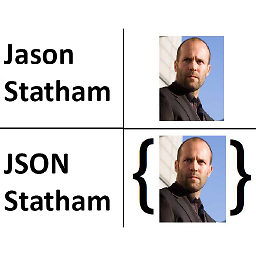How to read partitioned parquet files from S3 using pyarrow in python
Solution 1
I managed to get this working with the latest release of fastparquet & s3fs. Below is the code for the same:
import s3fs
import fastparquet as fp
s3 = s3fs.S3FileSystem()
fs = s3fs.core.S3FileSystem()
#mybucket/data_folder/serial_number=1/cur_date=20-12-2012/abcdsd0324324.snappy.parquet
s3_path = "mybucket/data_folder/*/*/*.parquet"
all_paths_from_s3 = fs.glob(path=s3_path)
myopen = s3.open
#use s3fs as the filesystem
fp_obj = fp.ParquetFile(all_paths_from_s3,open_with=myopen)
#convert to pandas dataframe
df = fp_obj.to_pandas()
credits to martin for pointing me in the right direction via our conversation
NB : This would be slower than using pyarrow, based on the benchmark . I will update my answer once s3fs support is implemented in pyarrow via ARROW-1213
I did quick benchmark on on indivdual iterations with pyarrow & list of files send as a glob to fastparquet. fastparquet is faster with s3fs vs pyarrow + my hackish code. But I reckon pyarrow +s3fs will be faster once implemented.
The code & benchmarks are below :
>>> def test_pq():
... for current_file in list_parquet_files:
... f = fs.open(current_file)
... df = pq.read_table(f).to_pandas()
... # following code is to extract the serial_number & cur_date values so that we can add them to the dataframe
... #probably not the best way to split :)
... elements_list=current_file.split('/')
... for item in elements_list:
... if item.find(date_partition) != -1:
... current_date = item.split('=')[1]
... elif item.find(dma_partition) != -1:
... current_dma = item.split('=')[1]
... df['serial_number'] = current_dma
... df['cur_date'] = current_date
... list_.append(df)
... frame = pd.concat(list_)
...
>>> timeit.timeit('test_pq()',number =10,globals=globals())
12.078817503992468
>>> def test_fp():
... fp_obj = fp.ParquetFile(all_paths_from_s3,open_with=myopen)
... df = fp_obj.to_pandas()
>>> timeit.timeit('test_fp()',number =10,globals=globals())
2.961556333000317
Update 2019
After all PRs, Issues such as Arrow-2038 & Fast Parquet - PR#182 have been resolved.
Read parquet files using Pyarrow
# pip install pyarrow
# pip install s3fs
>>> import s3fs
>>> import pyarrow.parquet as pq
>>> fs = s3fs.S3FileSystem()
>>> bucket = 'your-bucket-name'
>>> path = 'directory_name' #if its a directory omit the traling /
>>> bucket_uri = f's3://{bucket}/{path}'
's3://your-bucket-name/directory_name'
>>> dataset = pq.ParquetDataset(bucket_uri, filesystem=fs)
>>> table = dataset.read()
>>> df = table.to_pandas()
Read parquet files using Fast parquet
# pip install s3fs
# pip install fastparquet
>>> import s3fs
>>> import fastparquet as fp
>>> bucket = 'your-bucket-name'
>>> path = 'directory_name'
>>> root_dir_path = f'{bucket}/{path}'
# the first two wild card represents the 1st,2nd column partitions columns of your data & so forth
>>> s3_path = f"{root_dir_path}/*/*/*.parquet"
>>> all_paths_from_s3 = fs.glob(path=s3_path)
>>> fp_obj = fp.ParquetFile(all_paths_from_s3,open_with=myopen, root=root_dir_path)
>>> df = fp_obj.to_pandas()
Quick benchmarks
This is probably not the best way to benchmark it. please read the blog post for a through benchmark
#pyarrow
>>> import timeit
>>> def test_pq():
... dataset = pq.ParquetDataset(bucket_uri, filesystem=fs)
... table = dataset.read()
... df = table.to_pandas()
...
>>> timeit.timeit('test_pq()',number =10,globals=globals())
1.2677053569998407
#fastparquet
>>> def test_fp():
... fp_obj = fp.ParquetFile(all_paths_from_s3,open_with=myopen, root=root_dir_path)
... df = fp_obj.to_pandas()
>>> timeit.timeit('test_fp()',number =10,globals=globals())
2.931876824000028
Further reading regarding Pyarrow's speed
Reference :
- fastparquet
- s3fs
- pyarrow
- pyarrow arrow code based on discussion & also documentation
- fastparquet code based on discussions PR-182 , PR-182 & also documentation
Solution 2
For python 3.6+ AWS has a library called aws-data-wrangler that helps with the integration between Pandas/S3/Parquet
to install do;
pip install awswrangler
to read partitioned parquet from s3 using awswrangler 1.x.x and above, do;
import awswrangler as wr
df = wr.s3.read_parquet(path="s3://my_bucket/path/to/data_folder/", dataset=True)
By setting dataset=True awswrangler expects partitioned parquet files. It will read all the individual parquet files from your partitions below the s3 key you specify in the path.
Solution 3
For those of you who want to read in only parts of a partitioned parquet file, pyarrow accepts a list of keys as well as just the partial directory path to read in all parts of the partition. This method is especially useful for organizations who have partitioned their parquet datasets in a meaningful like for example by year or country allowing users to specify which parts of the file they need. This will reduce costs in the long run as AWS charges per byte when reading in datasets.
# Read in user specified partitions of a partitioned parquet file
import s3fs
import pyarrow.parquet as pq
s3 = s3fs.S3FileSystem()
keys = ['keyname/blah_blah/part-00000-cc2c2113-3985-46ac-9b50-987e9463390e-c000.snappy.parquet'\
,'keyname/blah_blah/part-00001-cc2c2113-3985-46ac-9b50-987e9463390e-c000.snappy.parquet'\
,'keyname/blah_blah/part-00002-cc2c2113-3985-46ac-9b50-987e9463390e-c000.snappy.parquet'\
,'keyname/blah_blah/part-00003-cc2c2113-3985-46ac-9b50-987e9463390e-c000.snappy.parquet']
bucket = 'bucket_yada_yada_yada'
# Add s3 prefix and bucket name to all keys in list
parq_list=[]
for key in keys:
parq_list.append('s3://'+bucket+'/'+key)
# Create your dataframe
df = pq.ParquetDataset(parq_list, filesystem=s3).read_pandas(columns=['Var1','Var2','Var3']).to_pandas()
Solution 4
This issue was resolved in this pull request in 2017.
For those who want to read parquet from S3 using only pyarrow, here is an example:
import s3fs
import pyarrow.parquet as pq
fs = s3fs.S3FileSystem()
bucket = "your-bucket"
path = "your-path"
# Python 3.6 or later
p_dataset = pq.ParquetDataset(
f"s3://{bucket}/{path}",
filesystem=fs
)
df = p_dataset.read().to_pandas()
# Pre-python 3.6
p_dataset = pq.ParquetDataset(
"s3://{0}/{1}".format(bucket, path),
filesystem=fs
)
df = p_dataset.read().to_pandas()
stormfield
Feel free to contact me! import pandas as pd print (''.join(pd.Series([115, 116, 111, 114, 109, 102, 105, 101, 108, 100, 46, 115, 116, 97, 99, 107, 111, 118, 101, 114, 102, 108, 111, 119, 64, 103, 109, 97, 105, 108, 46, 99, 111, 109]).dropna().astype(int).apply(chr)))
Updated on July 12, 2022Comments
-
 stormfield 11 months
stormfield 11 monthsI looking for ways to read data from multiple partitioned directories from s3 using python.
data_folder/serial_number=1/cur_date=20-12-2012/abcdsd0324324.snappy.parquet data_folder/serial_number=2/cur_date=27-12-2012/asdsdfsd0324324.snappy.parquet
pyarrow's ParquetDataset module has the capabilty to read from partitions. So I have tried the following code :
>>> import pandas as pd >>> import pyarrow.parquet as pq >>> import s3fs >>> a = "s3://my_bucker/path/to/data_folder/" >>> dataset = pq.ParquetDataset(a)It threw the following error :
Traceback (most recent call last): File "<stdin>", line 1, in <module> File "/home/my_username/anaconda3/lib/python3.6/site-packages/pyarrow/parquet.py", line 502, in __init__ self.metadata_path) = _make_manifest(path_or_paths, self.fs) File "/home/my_username/anaconda3/lib/python3.6/site-packages/pyarrow/parquet.py", line 601, in _make_manifest .format(path)) OSError: Passed non-file path: s3://my_bucker/path/to/data_folder/Based on documentation of pyarrow I tried using s3fs as the file system, ie :
>>> dataset = pq.ParquetDataset(a,filesystem=s3fs)Which throws the following error :
Traceback (most recent call last): File "<stdin>", line 1, in <module> File "/home/my_username/anaconda3/lib/python3.6/site-packages/pyarrow/parquet.py", line 502, in __init__ self.metadata_path) = _make_manifest(path_or_paths, self.fs) File "/home/my_username/anaconda3/lib/python3.6/site-packages/pyarrow/parquet.py", line 583, in _make_manifest if is_string(path_or_paths) and fs.isdir(path_or_paths): AttributeError: module 's3fs' has no attribute 'isdir'I am limited to use a ECS cluster, hence spark/pyspark is not an option.
Is there a way we can easily read the parquet files easily, in python from such partitioned directories in s3 ? I feel that listing the all the directories and then reading the is not a good practise as suggested in this link. I would need to convert the read data to a pandas dataframe for further processing & hence prefer options related to fastparquet or pyarrow. I am open to other options in python as well.
-
 Todor Minakov about 5 yearsThank you for the through analysis; now that ARROW-1213 is resolved, do you have any new benchmarks to share? Thanks.
Todor Minakov about 5 yearsThank you for the through analysis; now that ARROW-1213 is resolved, do you have any new benchmarks to share? Thanks. -
 stormfield over 4 yearsbut i think there are few more issues to be sorted out for the same. Please see : issues.apache.org/jira/browse/ARROW-2038
stormfield over 4 yearsbut i think there are few more issues to be sorted out for the same. Please see : issues.apache.org/jira/browse/ARROW-2038 -
 stormfield over 4 yearsI think here are few more bugs to be sorted out after ARROW-1213 is resolved. Please see issues.apache.org/jira/browse/ARROW-2038 . Meanwhile we can use something along the lines of what has been mentioned in github.com/apache/arrow/pull/916#issuecomment-337619158 if you need to use pyarrow
stormfield over 4 yearsI think here are few more bugs to be sorted out after ARROW-1213 is resolved. Please see issues.apache.org/jira/browse/ARROW-2038 . Meanwhile we can use something along the lines of what has been mentioned in github.com/apache/arrow/pull/916#issuecomment-337619158 if you need to use pyarrow -
 efbbrown over 4 yearsI don't think this prohibits anyone from using the code I've written above to do what the questioner asked. How is that discussion directly related to reading parquet from S3 using the above method?
efbbrown over 4 yearsI don't think this prohibits anyone from using the code I've written above to do what the questioner asked. How is that discussion directly related to reading parquet from S3 using the above method? -
 stormfield over 4 yearsI didn't say your code doesn't work. I meant there are few more issues to be sorted out according to github.com/apache/arrow/pull/916#issuecomment-360541307 . From what i understand, I guess an edge case has been missed. So it might be better to use fastparquet over Arrow until ARROW-2038 is resolved.
stormfield over 4 yearsI didn't say your code doesn't work. I meant there are few more issues to be sorted out according to github.com/apache/arrow/pull/916#issuecomment-360541307 . From what i understand, I guess an edge case has been missed. So it might be better to use fastparquet over Arrow until ARROW-2038 is resolved. -
 stormfield over 4 years@TodorMinakov I have updated the answer & benchmarks as well
stormfield over 4 years@TodorMinakov I have updated the answer & benchmarks as well -
 Darren Weber about 4 yearsDoes
Darren Weber about 4 yearsDoestimeit.timeit('test_fp',number =10,globals=globals())actually call thetest_fpfunction? Should that betimeit.timeit('test_fp()',number=10,globals=globals())? -
 stormfield about 4 yearsHi @DarrenWeber good catch. Thank you! I probably should never code after 12 midnight again. I have updated the answer, with corrected code now.
stormfield about 4 yearsHi @DarrenWeber good catch. Thank you! I probably should never code after 12 midnight again. I have updated the answer, with corrected code now. -
 Vincent Claes over 3 yearsthe combination of s3fs and pyarrow versions is crucial for making this work. for example, a combination that works is s3fs==0.3.5 and pyarrow>=0.14.0
Vincent Claes over 3 yearsthe combination of s3fs and pyarrow versions is crucial for making this work. for example, a combination that works is s3fs==0.3.5 and pyarrow>=0.14.0 -
 Tampa about 3 yearsThis was the only example that worked from the others above
Tampa about 3 yearsThis was the only example that worked from the others above -
 Vikram Ranabhatt almost 3 years@efbbrown what s3fs and pyarrow version you tried for this fix
Vikram Ranabhatt almost 3 years@efbbrown what s3fs and pyarrow version you tried for this fix -
 Vikram Ranabhatt almost 3 yearsI am using pyarrrow 0.13 and s3fs-0.2.1...i am facing same issue.what is the minimum version for each to make it success.
Vikram Ranabhatt almost 3 yearsI am using pyarrrow 0.13 and s3fs-0.2.1...i am facing same issue.what is the minimum version for each to make it success. -
 Tom N Tech over 2 years@Vincent_Claes Thank you for this. How do you specify that you only want a certain partition loaded? How do you apply that filter? Will the library do it for you?
Tom N Tech over 2 years@Vincent_Claes Thank you for this. How do you specify that you only want a certain partition loaded? How do you apply that filter? Will the library do it for you? -
 Vincent Claes over 2 years@rjurney awswrangler supports filtering on partitions. You can find some examples here: github.com/awslabs/aws-data-wrangler/blob/master/tutorials/…
Vincent Claes over 2 years@rjurney awswrangler supports filtering on partitions. You can find some examples here: github.com/awslabs/aws-data-wrangler/blob/master/tutorials/… -
 Mojgan Mazouchi about 2 yearsThank you! This worked like a charm for me!
Mojgan Mazouchi about 2 yearsThank you! This worked like a charm for me! -
 CyborgDroid about 2 yearsHow would you specify partitions at a higher level? In your example keyname or blah_blah
CyborgDroid about 2 yearsHow would you specify partitions at a higher level? In your example keyname or blah_blah -
 2015evanotes almost 2 yearsWhere to set the keys , write data to private s3 bucket need keys.
2015evanotes almost 2 yearsWhere to set the keys , write data to private s3 bucket need keys. -
 Vincent Claes almost 2 years@2015evanotes do you mean KMS keys? if so, this answer can help stackoverflow.com/a/59713720/1771155
Vincent Claes almost 2 years@2015evanotes do you mean KMS keys? if so, this answer can help stackoverflow.com/a/59713720/1771155